Singapore is becoming a nation of urban gardeners – but is it all that sustainable?
Advertizement
Experiences
Singapore is becoming a nation of urban gardeners – but is it all that sustainable?
The light-green scene in Singapore may have blossomed, but are we taking the right steps to make our gardening efforts sustainable?
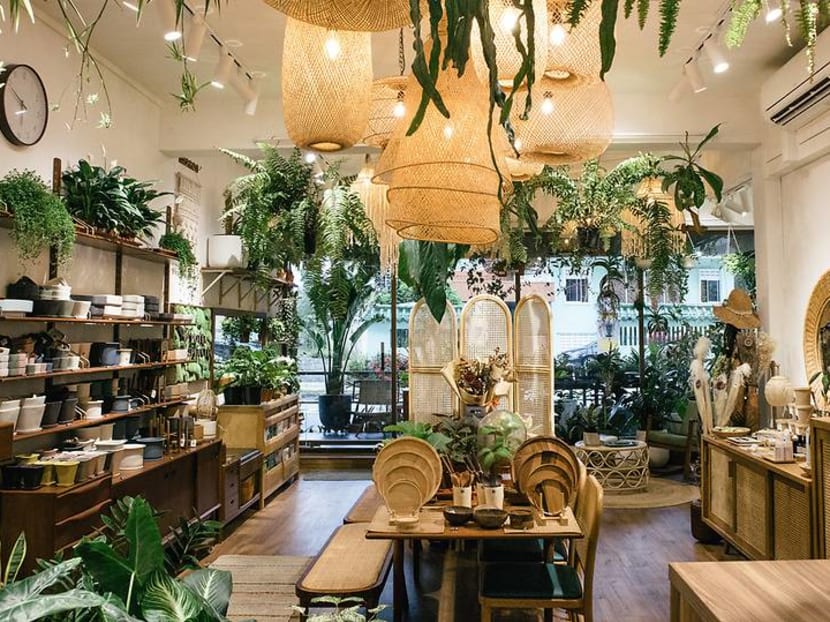
Potta Plantta is among a growing crop of specialist houseplant retailers advocating a institute-centric lifestyle. (Photo: Potta Plantta)
02 Mar 2022 06:30AM (Updated: 21 May 2022 11:57AM)
As global warming continues to be an oft-debated topic amongst the public, scientists, teenage activists and the adults who get riled up by said teenage activists, the i topic that's gained traction is that the real solution to climate alter is planting more trees.
The Science journal published a study in 2022 that mapped potential tree coverage of iv.4 billion hectares and its ability to absorb the carbon dioxide emissions that are driving global warming. Dr Jane Goodall is ane of many ecology influencers leading the reforestation agenda (find out more at 1t.org) and has committed to planting v one thousand thousand trees this yr.
READ> The architects designing the Punggol Digital District on creating a greener Singapore
In Singapore, where land is deficient, districts are built upwards, and most residents proceed habitation in loftier-rise apartments, many have taken to greenifying their homes, offices and even public spaces through the use of plants, urban gardens and rooftop urban farms.
READ> Raising the roof: Cultivating Singapore'south urban farming scene
Plants have go big business for nurseries. In the nearly contempo report conducted by NParks in 2016, the revenue generated from the sales of plants by the nursery industry was estimated at Southward$265 1000000. This figure includes both commercial and private purchases of ornamental plants, orchids, shrubs, trees and turf.
Constitute shop founders and owners, like Alex Depression of Potta Plantta and Cheryl Lee of The Botanist and Her Thieves (TBHT), credit this e'er-growing love for plants to social media and the online customs of "institute parents" (#plantparenthood).
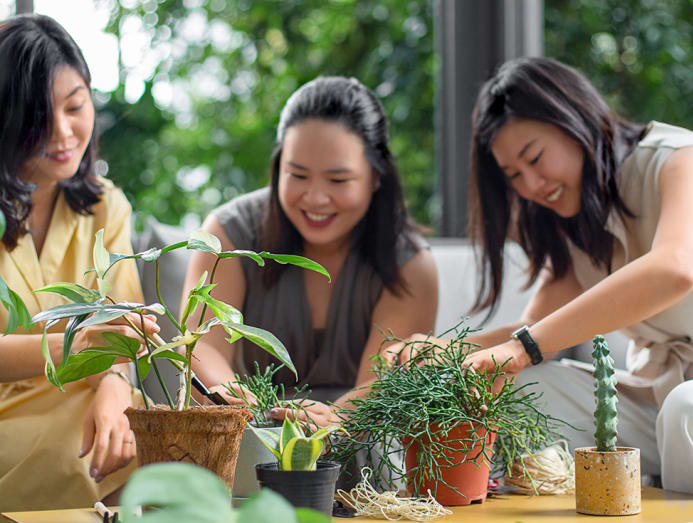
"Pinterest and Instagram have definitely played a huge part in inspiring people to 'live ameliorate', for example, styling their personal spaces, or learning to melt," said Lee.
These inspirational images, worthy of any interior design hardcover, have put plants on the must-take decor item listing – greenish thumbs optional. Visit whatsoever pop-upwardly boutique market and you'll spot plant stalls hawking Philodendrons and Monsteras, only the hottest plants to own right now. (Move over, fiddle-leaf fig tree).
Another "It" plant is the succulent (plants with thick, engorged stems or leaves), which has found its way into weddings every bit potted favours or on wedding ceremony cakes alongside fresh flowers. Companies too have caught on to the establish-loving trend and started to incorporate gardening workshops, like terrarium potting, into their corporate squad-building efforts.
Tumbleweed Plants is i such business that runs these workshops. But much more than than that, Denise Constabulary, i of the founders of Tumbleweed, helps to greenify offices too.
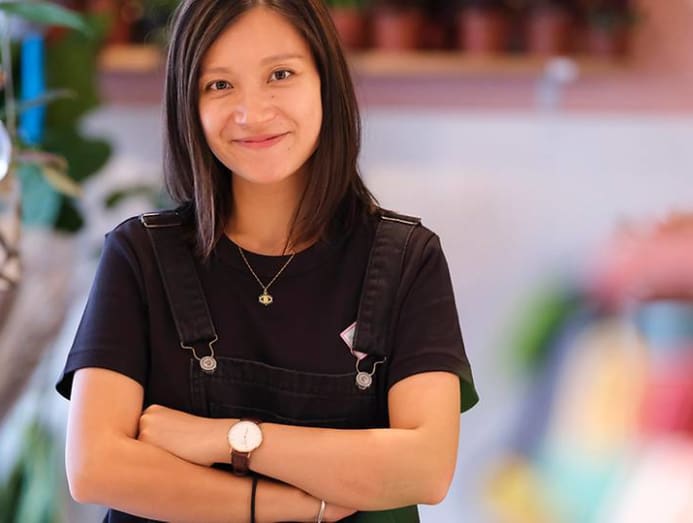
"We are working with some very prestigious brands, helping them create the kind of work environment that their employees, customers and clients want to spend fourth dimension in," said Law. "The tech-focused companies in particular have really caught on to the importance of plants to the look and feel of a working infinite."
Besides the obvious aesthetic appeal of plants, this nail in plant buying can likewise be attributed to our increasingly digital, indoor-sy lifestyles.
"More at whatsoever time in our past, we are living in big towns and cities and oftentimes in confined living spaces, spending work and leisure time in the digital earth, without much connection to the natural world that we're inherently part of," said Law. "Being around plants is a kind of antidote to our busy, urban, digital lives."
"More than than at any fourth dimension in our past, we are living in big towns and cities and oft in confined living spaces, spending work and leisure time in the digital world, without much connection to the natural globe that we're inherently part of. Being around plants is a kind of antidote to our busy, urban, digital lives." – Denise Police
READ> Is green the new glam? How tiny, rich Monaco is tackling sustainable tourism
"Gardening has physical and mental benefits. Information technology is skilful exercise which also has an uplifting effect on our mood," said Ng Cheow Kheng, Group Director, Horticulture & Customs Gardening, NParks.
"It invigorates the mind and enables us to satisfy our innate need to connect with nature – besides known equally biophilia. There is growing scientific evidence to support beneficial biophilic furnishings on wellness, such as reducing stress, enhancing positive mood, improving cognitive skills and academic functioning, besides as moderating the effects of ADHD, autism, and other childhood illnesses," he added.
Plants offer other health benefits also. According to Far East Flora'due south Sales & Marketing Director Peter Cheok, air-purifying plants are a popular option for their customers. "Plants [such as Anthurium, Ophidian Establish, Peace Lily and English language Ivy] filter harmful indoor airborne toxins (or VOCs – votatile organic compounds) from the air effectually and release clean air to improve air quality at homes and offices. VOCs are emitted from materials found anywhere at habitation – from paint on the wall to fibres on the burrow."
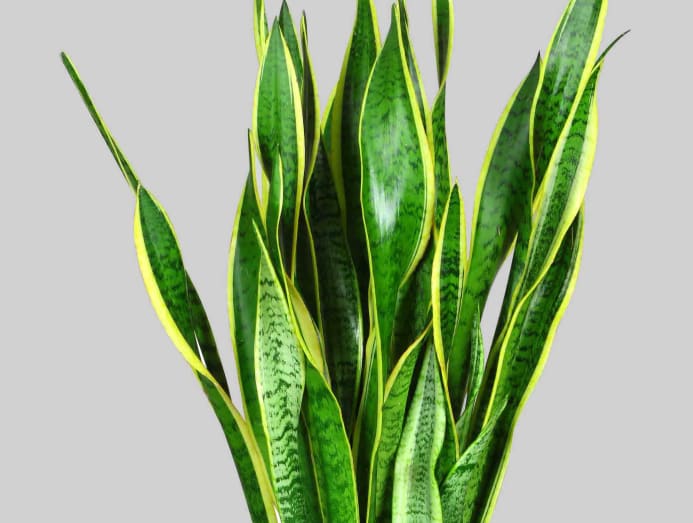
On the surface, this growing light-green scene is adept news all around with its environmental and social benefits. However, digging a trivial deeper, any trend and increase in demand for products means more logistics (to accept plants supplied) involved, and more packaging to ensure safe delivery to customers.
What does this mean for our carbon footprint and how are plant shop owners mitigating the negative touch on on the environment?
For small businesses like Tumbleweed, Potta Plantta and TBHT, every pocket-sized step makes a large difference in preventing adverse effects while helping to brand Singapore greener.
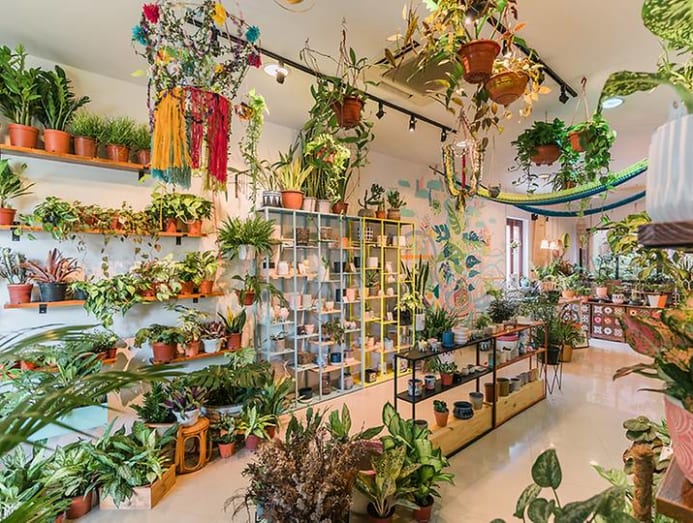
"All our bags are paper rather than plastic," said Tumbleweed's Law. "But we do use some single use plastics in our packaging (though nosotros try to go on it to a minimum). Nosotros've as well introduced waste matter reducing measures by encouraging customers and local businesses to share organic waste product such as coffee grounds and eggshells that we can use as organic fertilisers."
Potta Plantta'southward Low said, "We keep packaging to a minimal and frequently ship plants for deliveries in recycled fruit/vegetable baskets that are collected from the marketplace. For our customers, we provide paper bags that tin be reused or recycled. For deliveries, nosotros ever plan the well-nigh efficient route to minimise our time spent on the road, and we [also] tend to exercise our deliveries at night when the roads are less congested which reduces the time taken and fuel used, ultimately reducing our carbon footprint."
Fifty-fifty big businesses like Far Due east Flora are making efforts to reduce their carbon footprint through "the promotion and education of gardening, and the introduction of biodegradable bags at all iv retail garden centres. There are more than green initiatives in the pipeline – for example, the introduction of reusable tote bags," said Cheok.
Still, a potentially bigger culprit in reversing the positive effects of gardening could exist lack of cognition in how to maintain a garden.
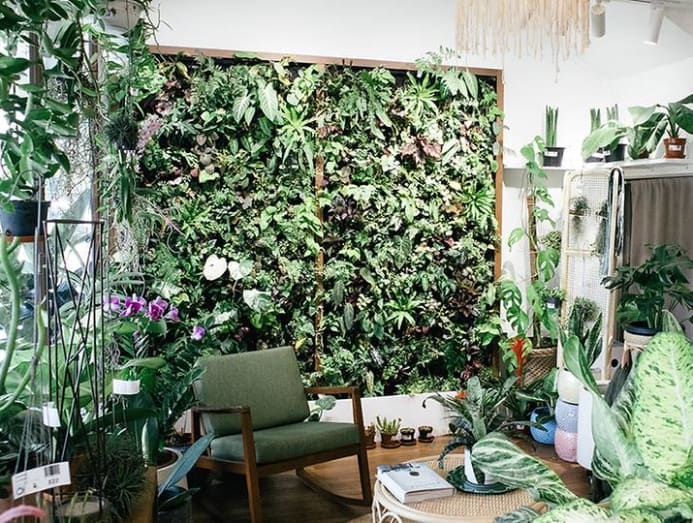
For Lee, The Botanist & Her Thieves started equally a retailer for beautiful plant pots. But it soon morphed into a business to solve gardening bug and the wastage in resources they faced themselves every bit home plant owners.
"We were making a mess at home when repotting. There was confusion with the range of fertilisers found off the shelf. We eventually amassed so many different types that yous didn't know what worked or not. Plants were dying even though nosotros kept to a watering routine. It became our mission to blueprint solutions to solve problems other houseplant owners might face up too."

"Plants are living things, like whatever other pet," said Low. "Time and endeavour are needed to successfully care for plants, and some people might non accept the time or energy to do and so.
"In order for [institute ownership] to be sustainable, people must be able to pick a plant that is suitable for their domicile or office surroundings. Too often, we become customers coming to u.s. for advice after the plants that they bought elsewhere died in a matter of days or weeks. This happens because they lack the proper noesis to determine whether the institute is suitable for their environment," said Depression.
Education is key to fixing this waste trouble. NParks has been fostering a love for gardening through their Community in Blossom (CIB) plan of creating community gardens and indoor gardening options. Sustainable practices are important to reduce waste but are non difficult to do, said NParks's Ng.
"Members of the public can take unproblematic steps to ensure that they are as environmentally-witting as possible," he said. "Used containers tin can be recycled to become flowerpots for gardening. Biodegradable pots can also be used as greener alternatives. Food waste material from the kitchen tin can be recycled via various composting methods.
"Where natural light is defective, more than energy-efficient LED abound lights tin exist used to provide the right spectra of light for indoor plants. In addition, low-maintenance plants that are less pest-decumbent tin be planted to minimise the usage of pesticides. Some of these plants include the Mini Monstera (Rhaphidophora tetrasperma) and the Trailing Watermelon Begonia (Elatostema pulchrum)," he offered.
"We know the environment is straining under the weight of man bear on and people desire to make a positive contribution, wherever they can," said Law.
Ultimately, going greener can merely benefit our environment when done right.
"Members of the public can take simple steps to ensure that they are as environmentally-conscious equally possible. Used containers tin be recycled to go flowerpots for gardening. Biodegradable pots can also be used as greener alternatives." – Ng Cheow Kheng
READ> How Singapore's leading F&B players are aiming for a zero carbon footprint
Source: https://cnalifestyle.channelnewsasia.com/experiences/urban-gardening-singapore-sustainability-177311
0 Response to "Singapore is becoming a nation of urban gardeners – but is it all that sustainable?"
ارسال یک نظر